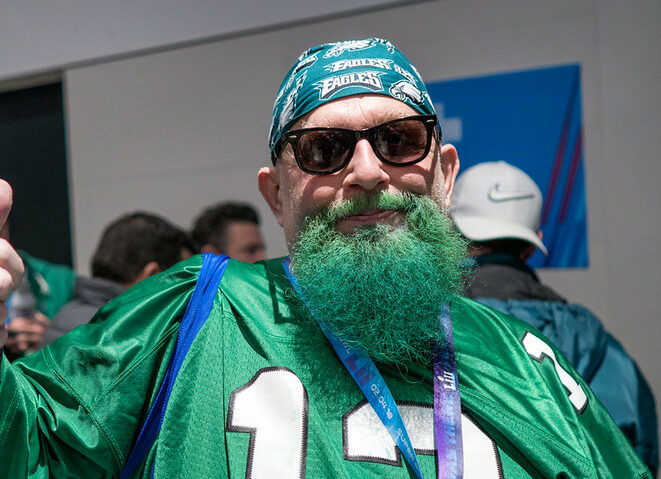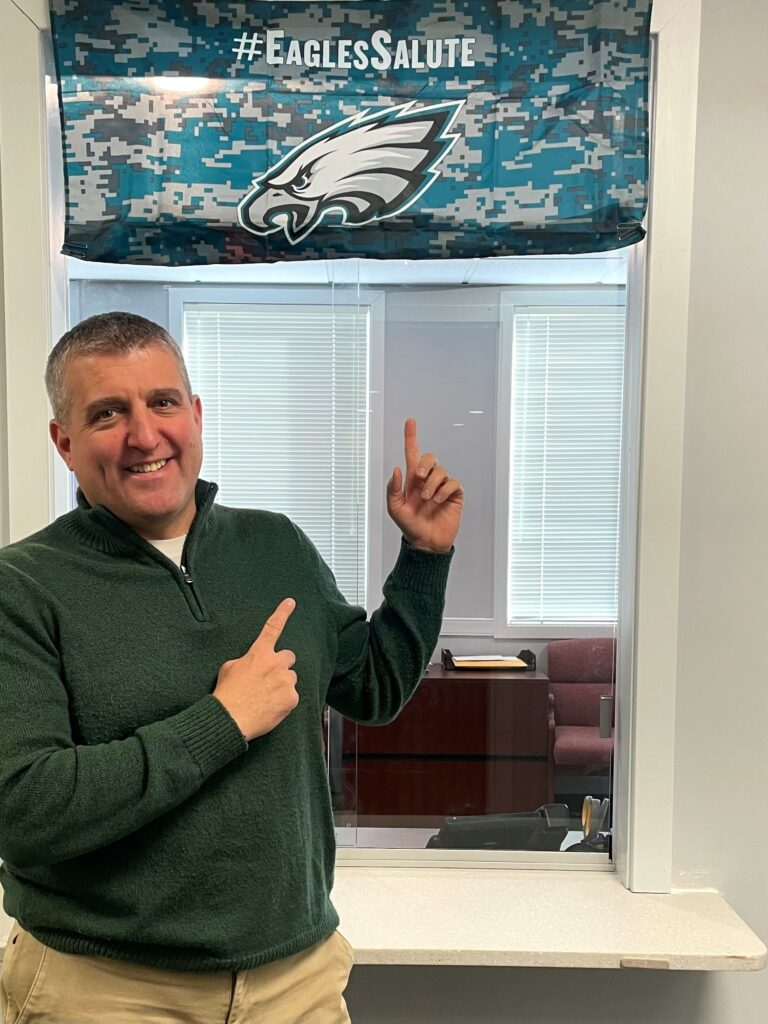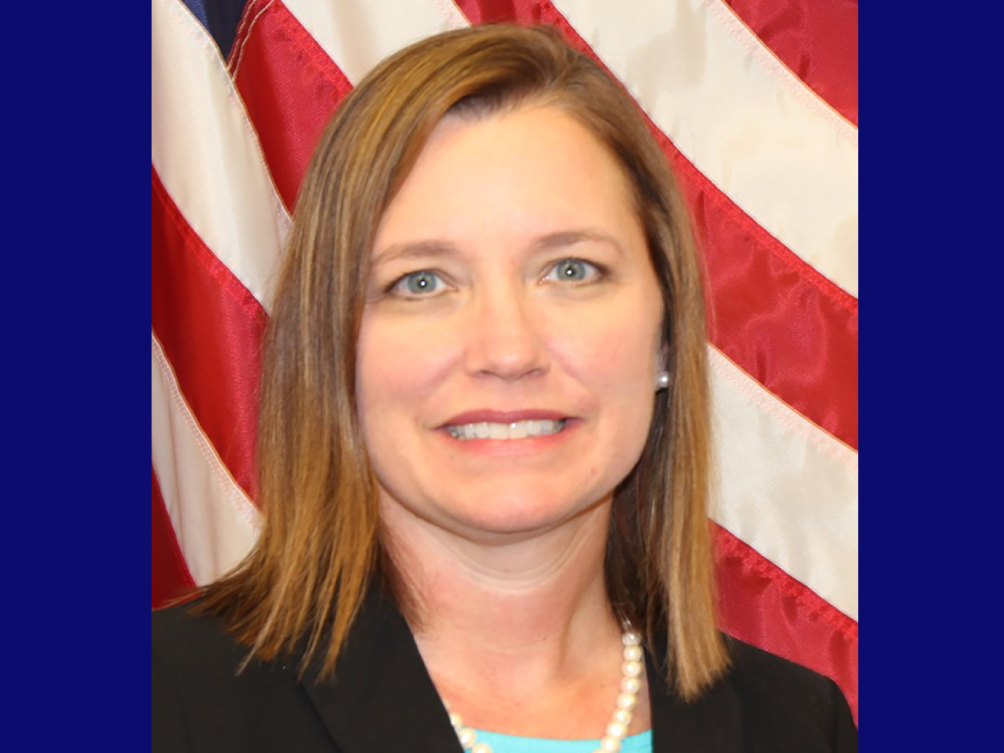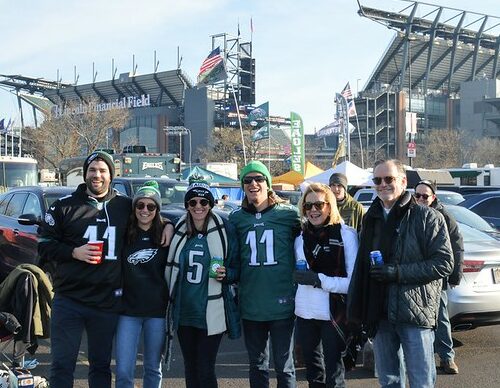Super Bowl Fans and Swifties Agree: Time to ‘Shake Off’ Ticketmaster

Taylor Swift may be able to swoop in from a concert stage in Tokyo to a box seat in Las Vegas and cheer for her boyfriend Travis Kelce and the Kansas City Chiefs. But if you want to see Super Bowl LVIII in person, you’re almost certainly going to have to use – and pay – Ticketmaster to buy your seats.
And you’ll want to be holding onto your seat when you see the cost.
InsideSources reviewed ticket prices mid-afternoon on Wednesday, Jan. 31, and found the lowest face value Super Bowl tickets from Ticketmaster cost $7,495 – before the added “convenience” fees.
For a seat closer to the action, say near the end zone, you’ll have to fork out $14,995 — plus an additional $3,186.44 in Ticketmaster fees. Then, just for good measure, Ticketmaster throws in another $2.95 per-ticket processing fee, too.
You can look for other options, but Ticketmaster is the official ticket marketplace of the NFL and owns 93 percent of NFL stadium ticketing contracts.
“To the average fan, the cost of going to the Super Bowl looks eye-watering,” said John Breyault, vice president of Public Policy, Telecommunications and Fraud for the National Consumers League. “It’s frustrating that they can’t get in to see their team for less than the cost of some college tuitions. But that’s the nature of sports and major events like the Super Bowl.”
If you’d rather skip the game and just see Taylor Swift in concert, the situation is similar. Ticketmaster and its sister company, Live Nation, control ticketing at 70 to 80 percent of major U.S. concert venues, according to estimates cited by senators in a Judiciary Committee hearing last year.
A recent story in American Prospect describes Ticketmaster’s track record as a “40-year saga of kickbacks, threats, political maneuvering, and the humiliation of Pearl Jam.”
“… [T]he strange and awesome power of Ticketmaster, a company built around the novelty of a printer that could instantaneously produce a cardboard entry pass into thousands of concerts from the convenience of the nearest Sam Goody, grew as every other part of the [music] business seemed to shrivel,” according to the American Prospect article. “Ticketmaster’s parent company is projected to gross $16 billion in 2022, more than the entire U.S. record industry grossed in 2021. Despite sponsoring almost no live events in the year following the outbreak of the pandemic, its stock price went up.”
To make sure Live Nation and Ticketmaster squeeze every cent they can out of concertgoers, they even own the bottled water brand Liquid Death Mountain Water, which, as part of its equity deal, “will only sell Liquid Death across its venues and festivals across the United States for a period of time.”
Because of the far-reaching impact of LiveNation’s and Ticketmaster’s policies, scrutiny is coming from both sides of the political aisle.
“This is all the definition of monopoly,” said Sen. Amy Klobuchar (D-Minn.) in last year’s Judiciary Committee hearing.
“The whole concert ticket system is a mess. It’s a monopolist mess” due to Live Nation’s “monopolistic control,” added Sen. Richard Blumenthal (D-Conn.)
And Republican Sen. Josh Hawley (R-Mo.) accused Ticketmaster of “forcing everyone in the resale market to come into [Ticketmaster’s] ecosystem.”
“This is how monopolies work,” Hawley said. “You leverage market power in one market to get market power in another market — and it looks like you’re doing that in, frankly, multiple markets.”
In December, the U.S. House Energy and Commerce Committee passed the TICKET Act in a 45-0 vote. The “Transparency In Charges for Key Events Ticketing Act” requires the total price of a ticket – service, processing, and other fees – to be displayed upfront. That is called “all-in pricing” and keeps consumers from guessing at fees as they’re digging out their credit card to enter the numbers, Breyault said.
The legislation also bans speculative ticketing, which is when a seller offers up a ticket they don’t possess and guarantees refunds for canceled and postponed events.
“The price you see advertised is the same price you pay at the end of the transaction,” Breyault said of all-in pricing. “Most consumers respond well to that. That could bring ticket prices down.”
Super Bowl tickets aside, the business model of Ticketmaster and its parent company, Live Nation, depends on being the biggest game in town. Many say it’s really the only game, although company officials deny that they are a monopoly.
“We absolutely believe the ticketing business has never been more competitive,” Live Nation President Joe Berchtold told the U.S. Senate.
Berchtold defended the company against a flurry of bipartisan questioning during a three-hour hearing in which it was accused of bullying competitors and holding an unfair advantage due to its sheer size over smaller ticketing platforms and independent concert and sports venues, artists, and teams. Berchtold blamed bots for many of the issues and said that was an issue for Congress.
Ticketmaster and other companies agreed last summer to offer all-in pricing following a meeting with the White House. Breyault, though, said doubts remain as to whether the platform is following through on that promise for every event. For the Super Bowl, consumers must click through three separate screens before learning the complete ticket price, which includes Ticketmaster’s service fees and order processing fee.
“Let’s make it easier for consumers to get access to cheaper tickets,” Breyault said, sounding the clarion call that has been no doubt been echoed by tens of thousands of Chiefs and 49ers fans as the Super Bowl approaches.
Diana Moss, vice president and director of Competition Policy for the Progressive Policy Institute, acknowledged prices for this year’s Super Bowl will be higher than other games, regardless of public policy, due to the high interest in the contest and the NFL’s hot, new celebrity couple.
“This is a very high-demand event,” Moss said. Still, the underlying problem of the secondary market remains.
“There is little incentive to improve the ticketing markets or distribution platforms,” Moss said. “It’s the hallmark of a broken market. [Officials] need to look at the monopoly for all the harm that is being inflicted on consumers.”
Media reports in July 2023 indicated the Justice Department was planning to file an antitrust case against Live Nation and Ticketmaster by the end of last year. While no case has surfaced, observers say that if there is a lawsuit and the government prevails, that could lead to a breakup of the behemoth.
But that is little solace to football fans who wonder whether it’s worth forsaking a couple of months’ rent to afford just Ticketmaster’s service fees.






